The Power of Forgiveness: Healing Wounds and Restoring Relationships Part 1: Forgiving Others
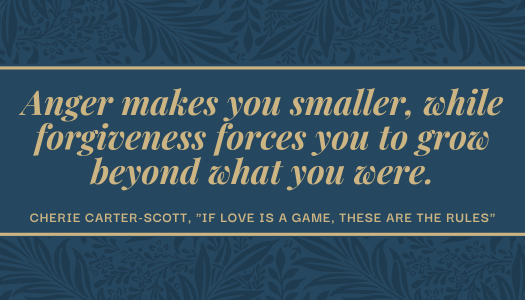 The power of forgiveness is an extraordinary force that has the ability to transform lives, mend broken relationships, and bring healing to wounded hearts. It is a concept that resonates deeply within the human experience, cutting across cultures, religions, and generations. In its essence, forgiveness is an act of letting go of resentment, anger, and the desire for revenge, choosing instead to extend grace, compassion, and reconciliation. Forgiveness is an act of strength, compassion, and self-care. It empowers us to heal, find peace, and move forward in life, free from the weight of past hurts. In exploring the power of forgiveness, one delves into a profound journey of healing, reconciliation, and the restoration of wholeness.
The power of forgiveness is an extraordinary force that has the ability to transform lives, mend broken relationships, and bring healing to wounded hearts. It is a concept that resonates deeply within the human experience, cutting across cultures, religions, and generations. In its essence, forgiveness is an act of letting go of resentment, anger, and the desire for revenge, choosing instead to extend grace, compassion, and reconciliation. Forgiveness is an act of strength, compassion, and self-care. It empowers us to heal, find peace, and move forward in life, free from the weight of past hurts. In exploring the power of forgiveness, one delves into a profound journey of healing, reconciliation, and the restoration of wholeness.
You Have a Choice
Forgiveness is a deliberate and courageous decision that individuals make to let go of resentment, anger, and the desire for revenge. It involves actively choosing to release the negative emotions associated with a hurtful experience and no longer holding the offense against the person who has wronged them. Forgiveness requires the acknowledgment that it is not dependent on the actions or remorse of the other person, but rather, initiating one's own capacity to extend grace and mercy. By choosing forgiveness, one chooses to love, breaking free from the cycle of hurt and allowing healing to take place within their heart. It is a declaration of an individual's inner strength and a refusal to let past wounds define them. Choosing to forgive opens the door to reconciliation, restoration, and the possibility of rebuilding broken relationships. It is a testament to one's capacity for compassion, empathy, and growth. Through the power of choice, an individual can experience the transformative and liberating effects of forgiveness in their life.
What Forgiveness is Not
Forgiveness is not about condoning or minimizing the wrongdoing or pain caused by others. It is not a sign of weakness or a way to overlook the seriousness of the offense. Forgiveness is not about forgetting what happened or pretending that it didn't hurt. It is not a one-time event that automatically erases all the consequences or emotions associated with the offense.
Even though it allows the space for it, forgiveness does not require reconciliation or reestablishing trust, but it empowers individuals to find inner peace and emotional well-being.
Forgiveness is a Commandment
Forgiveness is not only encouraged but also a central commandment Jesus illustrates throughout the Bible. In Matthew 6:14-15, we see that offering mercy is paramount to our own eternal salvation.
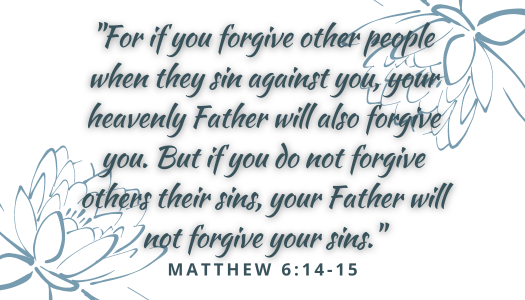
Let’s quickly review some times when Jesus bestowed forgiveness in the Bible.
Jesus' forgiveness of the paralyzed man (Mark 2:1-12):
When a paralyzed man was brought to Jesus by his friends, Jesus forgave his sins before healing him physically. This act of forgiveness showcased Jesus' authority to forgive sins and His compassion toward those in need.
Forgiving the woman caught in adultery (John 8:1-11):
Jesus showed mercy and forgiveness to a woman caught in the act of adultery. Instead of condemning her, He challenged her accusers, and when they dispersed, Jesus told her, "Neither do I condemn you; go, and from now on sin no more."
Peter's Denial and Restoration (John 21:15-19):
After Peter denied Jesus three times, Jesus forgave him and restored their relationship. Jesus gave Peter the opportunity to reaffirm his love and commitment, emphasizing the power of forgiveness and redemption.
Jesus' forgiveness of the thief on the cross (Luke 23:39-43):
While being crucified, Jesus was mocked and taunted by the criminals crucified with Him. Yet, in the midst of his suffering, Jesus extended forgiveness to one of the thieves who acknowledged his own guilt and recognized Jesus as the Messiah. Jesus assured him of salvation and paradise.
Jesus on the Cross (Luke 23:34):
While being crucified, Jesus exemplified ultimate forgiveness by praying for those who crucified Him, saying, "Father, forgive them, for they do not know what they are doing." He demonstrates extraordinary love and mercy even in the midst of extreme suffering.
These instances emphasize Jesus' divine authority to forgive sins and His willingness to extend forgiveness to those who repent and seek Him. Jesus' forgiveness serves as a powerful demonstration of the depth of God's love, grace, and desire for reconciliation with humanity. They serve as a reminder for us of the call to forgive others.
The Blessings that Flow from Forgiveness
Forgiveness holds substantial spiritual and personal benefits and blessings. Let’s take a look at some of the profound gains that forgiveness yields.
Healing:
Forgiveness is a powerful, far-reaching, and multifaceted healing process that encompasses the rehabilitation of all aspects of well-being. Carrying unresolved anger and resentment can contribute to the constant replaying of negative emotions and experiences, which can lead to chronic stress and heightened anxiety. The inability or refusal to forgive can create a heavy emotional burden and distress. Prolonging these feelings can take a heavy toll on your happiness and health. Forgiveness has the potential to release deep-seated emotional pain, resentment, bitterness, and anger. Not only does letting go of these feelings allow for higher life satisfaction, but it has also been shown to reduce symptoms of depression, anxiety, and stress. More specifically, it reduces an elevated heart rate, blood pressure, and cortisol levels, and improves the functioning of the immune system. Because forgiveness aligns with core Christian principles and teachings, and challenges you to develop Christlike virtues such as humility, love, and mercy, which aid in nurturing your spiritual wellness.
Finding Peace:
Unforgiveness can consume a significant amount of energy, leaving little room for joy and peace. By holding onto unforgiveness, you are keeping yourself trapped in a self-imposed prison that repeatedly exposes you to the corrosive effects of bitterness, hurt, and resentment. Forgiveness breaks this cycle of hatred and resentment by empowering you to overcome the natural inclination to seek revenge or hold grudges. When you forgive, you actively choose a different path, one of love over hate. This path fosters a newfound sense of emotional freedom and peace. When you refuse to feed the cycle of harm, you can create a ripple effect of healing and transformation in yourself, your family, your workplace, your communities, and others in society.
Inner Growth and Improvement:
When you don’t forgive, you impede personal growth and development. By keeping yourself stuck in the past, you are preventing yourself from moving forward, hampering your ability to learn from experiences, find closure, and embrace new opportunities. Forgiveness requires you to confront your vulnerabilities. When you open up the space to learn valuable lessons about yourself and others, you permit yourself the chance to transcend the role of a victim by moving from a position of being wounded to one of greater resilience and strength. You can redefine your narrative, embrace a positive mindset, employ adaptive coping strategies, and enable yourself to bounce back from setbacks and conflict more effectively.
Restoring and Stabilizing Relationships:
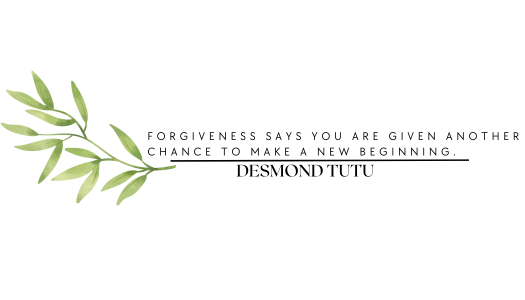 Choosing not to forgive harbors an atmosphere of conflict, resentment, and anger, that ultimately causes a breakdown in communication, trust, and intimacy. It prevents the nurturance of a healthy and fulfilling connection with another. Forgiveness plays a crucial role in thwarting the deterioration of a relationship by paving the way to mend the damage. When you offer forgiveness, you create an opportunity to promote empathy, understanding, and the rebuilding of trust. The vulnerability, integrity, understanding, and compromise required for forgiveness have the potential to create stronger and more meaningful connections.
Choosing not to forgive harbors an atmosphere of conflict, resentment, and anger, that ultimately causes a breakdown in communication, trust, and intimacy. It prevents the nurturance of a healthy and fulfilling connection with another. Forgiveness plays a crucial role in thwarting the deterioration of a relationship by paving the way to mend the damage. When you offer forgiveness, you create an opportunity to promote empathy, understanding, and the rebuilding of trust. The vulnerability, integrity, understanding, and compromise required for forgiveness have the potential to create stronger and more meaningful connections.
Growing your Relationship with God:
Forgiveness aligns with the nature of God, forgiving and merciful. Because of this, when you render forgiveness it is a reflection of God's love, grace, and redemptive work in the world. Forgiveness can be seen as an investment in eternal treasures and a demonstration of faithfulness that also grants you the opportunity to become more Christlike. Basically, when you embrace forgiveness you deepen your faith, and prepare the way for a restored relationship with God, bearing witness to His love and forgiveness firsthand.
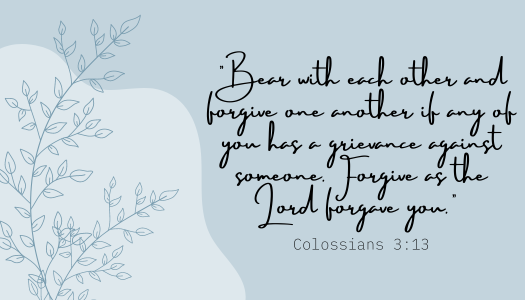 Forgiveness is Not Always Easy
Forgiveness is Not Always Easy
Forgiveness is a noble and transformative act, yet it can also be an unappealing challenge. The journey of forgiveness requires individuals to navigate through the complexities of human emotions, confront painful experiences, and the depth of hurt caused by others, and make a conscious choice to let go of resentment. Whether it's due to the severity of the offense, the fear of being hurt again, or the struggle to reconcile conflicting emotions, the path to forgiveness can be filled with obstacles. It’s no wonder why forgiveness is a difficult path to tread. Gaining an understanding of the various emotional, psychological, and relational barriers that surround the hesitation to forgive, opens the doors to empathy, self-reflection, and ultimately, the potential for healing and relief. Let’s explore some of the common obstacles that hinder forgiveness.
Enduring Emotional Turmoil:
When someone inflicts deep emotional pain, the resulting distress can be intense, overwhelming, and long-lasting. The gravity of the hurt can create obstacles to releasing negative emotions and embracing forgiveness.
Violation of Trust:
Betrayal of trust poses a special challenge to forgiveness. Rebuilding trust requires time, and extending forgiveness may demand substantial effort and healing.
Perceived Injustice:
If the offense appears unjust or undeserved, it can create a barrier and hinder forgiveness. The longing for fairness or justice may impede the ability to let go of anger and resentment.
Fear of Repeat Harm:
Previous experiences of hurt make individuals wary and reluctant to forgive. The fear of vulnerability or encountering similar pain can make forgiveness seem like a daunting undertaking.
Misconceptions about Forgiveness:
Misunderstandings about forgiveness, such as believing it condones actions or necessitates forgetting, can complicate the acceptance of forgiveness.
Absence of Empathy or Remorse:
Genuine remorse and the acceptance of responsibility from the person who caused harm can greatly influence the ability to forgive. Without a sense of remorse or understanding, forgiveness may feel undeserved or unmerited.
Holding Tight to Resentment:
Holding onto resentment sometimes grants a sense of power or control over the situation. Letting go of that resentment may require confronting feelings personal feelings of vulnerability or powerlessness.
Fear of the Process:
Forgiveness is a journey that demands time and effort. It may involve navigating emotions, seeking support, and engaging in self-reflection. The path to forgiveness can be lengthy and may encompass setbacks along the way.
Whatever the reason, it is pivotal to rise above the negativity and make a commitment to forgive.
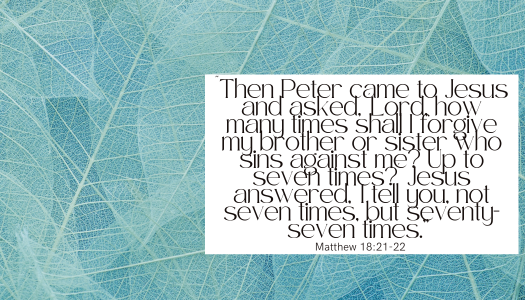 How to Overcome Challenges with Forgiveness
How to Overcome Challenges with Forgiveness
Forgiving when it's genuinely difficult can be a challenging process, but with patience, self-compassion, and intentional steps, it is possible. Here are some suggestions to help you navigate the journey of forgiveness when it feels particularly challenging.
Acknowledgment, Reflection, and Acceptance of Feelings:
Anger, hurt, and resentment are normal, and even expected, human emotions. It’s okay to feel them. By acknowledging and validating your emotions, you allow yourself to fully experience and process them without judgment. Once you’ve accepted these feelings, try to gain an understanding of how they impact you by going through a process of self-reflection. Ask yourself how holding on to these emotions affect you. Once you’ve recognized and acknowledged your emotions, you need to consider your triggers and biases, too. Build upon your foundation of self-awareness and look within to discern how you may have contributed to the conflict and dynamics of the situation. The key is to be honest with yourself. When you go through the process of acceptance, and comprehensive deliberation, you have afforded yourself the opportunity to understand that forgiveness is necessary for your own well-being, growth, and emotional freedom.
Avoid Getting in Your Own Way:
Knowing how the negative emotions are affecting you and why you need to forgive is just the first step, and all too often, it is easier to say you are going to forgive than it is to actually implement forgiveness. Especially since humans are apt at getting in their own way. In order to avoid this, you need to harbor proactivity by maintaining your self-awareness, practicing self-control, and channeling your emotional maturity. This involves taking a moment to pause and reflect on any challenges that arise before responding. Refrain from reacting impulsively out of anger or frustration. Carefully choose your words and actions. By taking the time to respond calmly and thoughtfully, you can diffuse tension and any feelings that are fueled by anger and hurt.
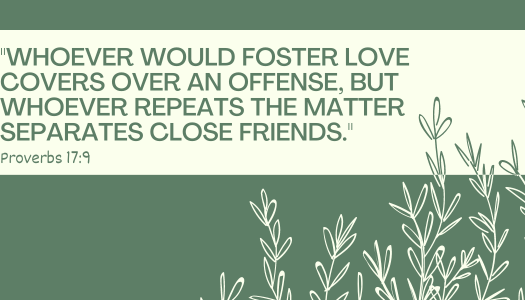 Focus on Healing and Growth:
Focus on Healing and Growth:
Use the experience as an opportunity for personal growth. When you prioritize your personal growth and development, you invest your energy in constructive pursuits. Focus on your resilience, strength, and the lessons learned while determining how you can improve your own attitudes, communication, and relationships. Commit to becoming a better version of yourself, regardless of how others behave. Embracing personal growth can help influence your perspective and foster forgiveness.
Look Through the Lens of Empathy and Compassion:
Try to see the situation from the other person's perspective. Don’t assume their intentions, instead, acknowledge all possible motivations and struggles. Recognize that they too, are flawed human beings, that are capable of making mistakes, carrying their own pain and brokenness, and have the capacity to change. By gaining insight, you can approach the situation with compassion and empathy. This provides the room for you to respond with patience, kindness, and a willingness to forgive.
Engage your Social Support Network:
Seek the support of trusted friends, family members, or a professional counselor who can lend a compassionate ear and valuable guidance. Opening up to someone understanding and supportive enables you to gain fresh perspectives and effectively navigate through your thoughts and emotions and can facilitate healing and provide a helpful outlet for processing your experiences.
And Your Spiritual Support Network:
Meditate on the immense forgiveness God has shown you, despite your imperfections. Contemplate the depth of His love, mercy, and grace. Allow this understanding to shape your perspective on forgiveness and inspire you to follow His example. Better yet, invite God into the process of healing and inner renewal. Pray and ask Him to soften your heart. Ask for His help in overcoming any barriers or obstacles that may hinder your forgiveness process, and to provide you with the grace needed to enable you to forgive those who have wronged you. Allow His Spirit to work in you, bringing healing, peace, and restoration to your wounded heart. Pray for the other person, too. Acknowledge that they are in need of God’s grace and forgiveness, and pray for their well-being. You need to embrace forgiveness as a central aspect of your faith and extend grace and mercy to others, mirroring the forgiveness you have received from God.
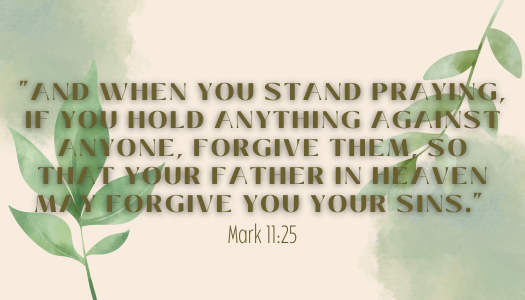 Decide to Let Go:
Decide to Let Go:
Not every disagreement or conflict needs to be escalated. Sometimes, it's better to let go of minor issues and focus on maintaining peace and harmony. Forgiveness means prioritizing cooperation and resolution. It is not about proving yourself right or winning. It is about choosing love, kindness, and peace over negativity and conflict. It involves truly letting go of the emotional attachment to grudges, past grievances, bitterness, and resentments that only perpetuate negativity. It can help to visualize yourself releasing the emotional burden, journaling about your desire to let go or writing a letter expressing your forgiveness (even if you don’t send it). Surrender your emotions to God. Lean on him to heal and restore you.
Cut Yourself a Break:
Be kind to yourself throughout the forgiveness process. Recognize that forgiveness is a personal journey and it may take time. While the process unfolds naturally, treat yourself with patience, understanding, and self-care so you can manage stress, maintain a positive mindset, and approach conflicts with an open heart and mind.
If Possible, Seek Reconciliation:
Reconciliation may not always be possible or advisable, but when it is, it can bring further healing and restoration to the relationship. If appropriate and safe, consider pursuing reconciliation with the person you have forgiven. Reach out and find an opportunity to meet with the purpose of engaging in open and honest communication that fosters and promotes empathy, understanding, and conflict resolution. Be attentive and fully present when conversing. Listen to them without interruption or asserting your opinions. Seek to understand their perspective. Calmly and clearly, express your feelings. Instead of dwelling on the problem, be proactive and focus on finding resolution and compromise. Don’t get caught up in blame or negativity. Look for areas of agreement or shared goals, even in the midst of disagreements. Finding common ground can help bridge gaps and the ability to work together toward a mutually beneficial outcome that leads to a stronger and healthier connection.
If Not, Set Realistic and Healthy Boundaries:
Forgiveness does not mean you have to reconcile or maintain a close relationship with the person who hurt you, especially if it is unsafe or toxic. You do not need to accept mistreatment or allow others to walk over you. It's important to establish and communicate healthy boundaries to protect yourself and create a safe space for healing to occur. This shows self-respect and encourages respectful interactions.
Establish a Lifestyle Change:
Forgiveness requires the embodiment of maturity, grace, and integrity in challenging situations. It is a continual practice that requires self-awareness, self-control, and a commitment to personal growth. It is a choice that needs to be made time and time again to rise above negativity and contribute positively to your interactions and relationships. Practice forgiveness often so you can adopt it as a habit. With time, forgiveness will become easier to impart.
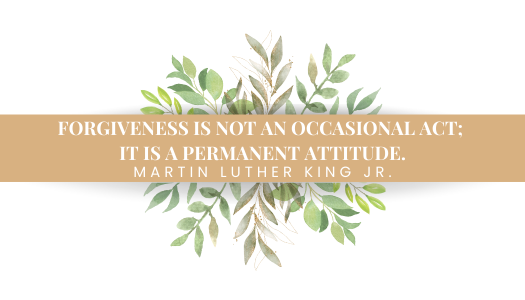 While forgiveness can be difficult, it is important to remember that it is a choice and a process. It may require patience, self-compassion, and support from others. However, the transformative power of forgiveness can bring healing, freedom, and restoration to both the forgiver and the relationship. It may require effort, reflection, and a willingness to let go of the pain, but ultimately, forgiveness is a choice we make for our own sake and the sake of our relationships.
While forgiveness can be difficult, it is important to remember that it is a choice and a process. It may require patience, self-compassion, and support from others. However, the transformative power of forgiveness can bring healing, freedom, and restoration to both the forgiver and the relationship. It may require effort, reflection, and a willingness to let go of the pain, but ultimately, forgiveness is a choice we make for our own sake and the sake of our relationships.
Before You Go
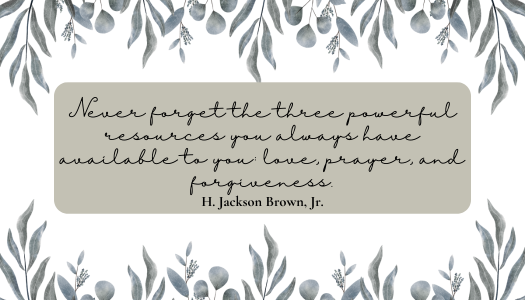 Forgiveness holds immense significance as it reflects the very heart of God's character and the redemptive message of Jesus Christ. Through forgiveness, you can experience inner healing, restoration of relationships, and the opportunity for personal growth. It is a commandment to forgive others as God has forgiven us, recognizing that forgiveness is not an easy task but a transformative process that brings peace, reconciliation, and the manifestation of God's love in our lives. By embracing forgiveness, you embody Christ's example and contribute to a world marked by grace, mercy, and the power of reconciliation.
Forgiveness holds immense significance as it reflects the very heart of God's character and the redemptive message of Jesus Christ. Through forgiveness, you can experience inner healing, restoration of relationships, and the opportunity for personal growth. It is a commandment to forgive others as God has forgiven us, recognizing that forgiveness is not an easy task but a transformative process that brings peace, reconciliation, and the manifestation of God's love in our lives. By embracing forgiveness, you embody Christ's example and contribute to a world marked by grace, mercy, and the power of reconciliation.
- Torrance Church of Christ
